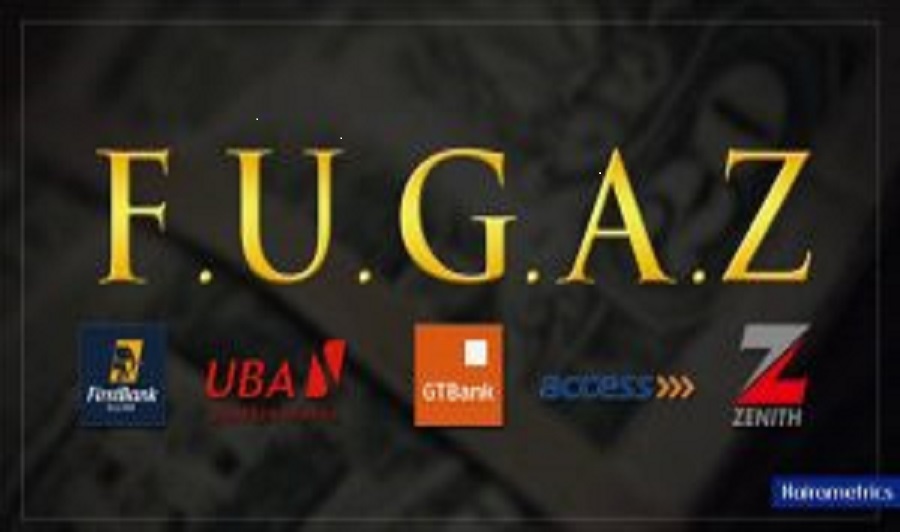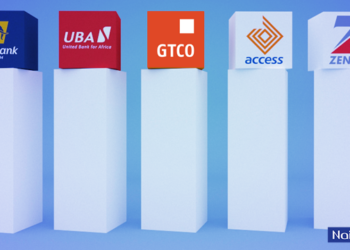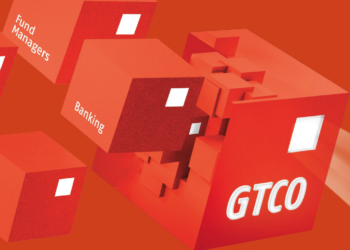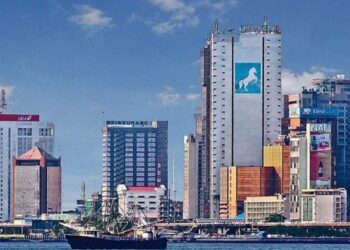FUGAZ!
As much as you would like to make sense of what you just pronounced, it is not a word. Rather, it is an acronym that is ubiquitous in its use in Nigeria’s financial world to represent her tier 1 banks. Each letter of the acronym representing the first letter of each of the banks, purposefully arranged to be pronounceable- First Bank, UBA, GTB, Access, and Zenith Banks.
FUGAZ, since their classification, have become the benchmark for quantifying the impact of fiscal and economic policies on the banking industry. One would be forgiven for thinking that only these banks make up the industry after a cursory look at the headlines of financial publications in Nigeria. FUGAZ has become the sample size for financial experts in making comments on the banking industry, usually excluding the over 100 other commercial and microfinance Banks in the country. FUGAZ are basically too big to fail.
On what basis do these experts classify their sample and how accurate are they?
READ: CBN removes “third parties” from buying forex routed through Form M
The profitability
FUGAZ accounts for a major chunk of the profits declared in the sector; over 60% to be precise. A little context: Zenith declared N50.5 billion for Q1 2020 profit after tax, GTB N50.1 billion, Access N40.9 billion, UBA N30.1 billion, and FBN Holdings N25.7 billion
Hot on their heels were Ecobank Transnational Inc, Stanbic IBTC Holdings, and Fidelity Bank with N24.3 billion, N20.6 billion, and N5.8 billion.
READ: Devaluation hurts Airtel Nigeria’s revenue as data revenues grow by 40%
Share price and investor preference
Investors’ preference for FUGAZ is evident in the volume of daily deals done on their stock on the floors of the Nigerian Stock Exchange daily. A typical day (21st August 2020) on the NSE saw FUGAZ account for 40% of the 158 million volume in the banking sector, taking up 4 of 5 top spots on the share price, and recording the most volatility in share price in the sector- GTBank with -0.15 and Zenith with -0.1.
This is the norm and not an exception.
READ: USA will continue to partner with the AfDB – Steve Mnuchin
| BANK | NO OF DEALS | SHARE PRICE (N) | CHANGE |
| Access Bank Plc | 4,209,194 | 6.5 | 0 |
| Aso Savings & Loans | — | 0.5 | — |
| Ecobank Transnational Inc | 3,735,130 | 4 | 0 |
| FBN Holdings Plc | 17,890,063 | 5 | 0 |
| FCMB Group Plc | 2,077,377 | 2.03 | 0.03 |
| Fidelity Bank Plc | 1,156,799 | 1.8 | -0.02 |
| Guaranty Trust Bank | 16,147,904 | 25.1 | -0.15 |
| Jaiz Bank Plc | 1,040,925 | 0.6 | 0.01 |
| NPF Microfinance Bank | 290,000 | 1.28 | 0.02 |
| Omoluabi Mortgage Bank Plc | — | 0.6 | — |
| Stanbic IBTC Holdings | 9,820 | 34.5 | 0 |
| Sterling Bank | 2,465,602 | 1.18 | 0 |
| United Bank for Africa | 5,391,518 | 6.6 | -0.05 |
| Union Bank Nigeria | 464,497 | 5.4 | 0 |
| Union Homes Savings & Loans | — | 3.02 | — |
| Unity Bank | 433,063 | 0.52 | -0.02 |
| Wema Bank | 1,736,854 | 0.51 | 0 |
| Zenith International Bank | 19,077,759 | 16.8 | -0.1 |
Source: NSE data on trades for 21/08/2020
FUGAZ portfolio of foreign currency-denominated debts and the listing of their members on some Exchanges outside of the country is a testament of their appeal to foreign investors.
Branch network and customer base
The fact that FUGAZ reportedly controls 70% of the market share in the industry is more likely a function of their expansive branch network than any other single factor. Zenith Bank has over 500 branches, GTB conducts its business from over 231 branch locations, UBA 428, and well, Access and FBN are seen almost on every street corner with the latter boasting in excess of 790 branches nationwide. This is apart from their subsidiary branches across Africa and in relevant trade partner countries.
Interestingly, the banks’ teeming customer base are ‘enjoying’ a love-hate relationship with these banks, if the complaints on social media are anything to go by. Regardless, these customers remain committed to keeping FUGAZ at the summit of the industry with their contributions to the bottom-line.; N1.35 trillion growth in Q1 of 2020 alone.
READ: GTBank, Zenith Bank, Nestle emerge Renaissance Capital’s top stock picks
A few other banks outside of FUGAZ such as Union Bank and Ecobank are able to compete on branch network and reach. Nonetheless the fact that FUGAZ accounted for N8.7 billion of the N13.5 billion spent on publicity and advertisements by banks listed on the NSE in Q1 of 2020 has its merits.
Do we always have to consider FUGAZ?
The statistics show that we do. They are the systemic banks of the industry, more like “senior partner Banks” of the CBN, having produced four of the last five CBN Governors and being the largest investors in CBN’s bills and bonds – a direct consequence of their humongous balance sheet size.
Their expansive network and massive customer base ensure that they are preferred PFIs for government interventions. Indeed, one can safely say that nothing really works in Nigeria’s banking industry without the support of FUGAZ. They have become that influential.
READ: Stanbic IBTC Holdings lists new 31.51 million ordinary shares
And their results?
Their mobilization of customer deposit is expected to have been hindered by the economic situation and the aggressiveness of lower-tiered competitors and online savings platforms who have upped the ante on publicizing their campaign for funds with relatively mouth-watering interest rates for their customers and incentives for referrals and responsible staff. The FX forte of FUGAZ was practically nonexistent in Q2 2020 and would definitely impact their profitability as it has already hampered repayment of some of their debts.
Also, having 70% of the industry’s market share means FUGAZ have a proportionate amount of loans in the industry, and Non-performing loans too. The NPL decline of H1 2019 is not likely to be reciprocated in H1 2020 because of the pandemic. But their bullish booking of new loans amidst the pandemic would be significant in covering the impairment shortfall of previous NPLs.
Never in recent history of Nigerian Banks has so much been dependent on so few. Industry watchers are once again looking out for FUGAZ to show leadership with their Q2 2020 results. Having surpassed expectations in Q1 and made lofty projections for Q2 profitability, Observers and Analysts believe FUGAZ Q2 results will definitely not be as buoyant as their Q1. They believe the objective of FUGAZ would be adapting to the new business models and priorities imposed by the pandemic, nonetheless their expected profitability will be a show of the resilience of Nigeria’s top lenders.
The focus of FUGAZ Q2 has become more than a media fad but a necessity of business analysis, as their profitability in times of the current economic adversity will be the ultimate test of the Government’s fiscal framework and economic response to the pandemic.




















